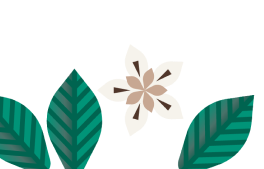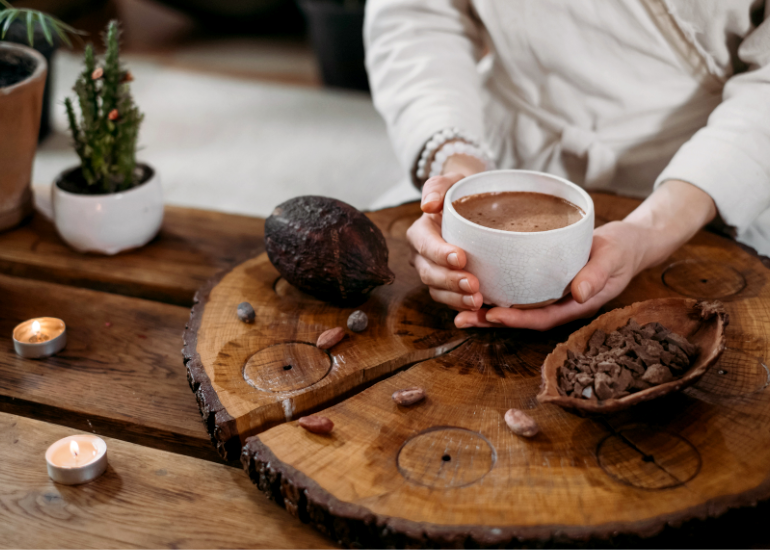We all know Fairtrade means food done better. But how? Why? And what do the different certifications mean? This month, we answer some of your most common questions around Fairtrade Certified and the practices it encompasses.
What does Fairtrade Certified mean?
While the fair trade movement has roots dating back to the 1800s, the certification process is relatively new. Coffee was the first crop to earn the seal, beginning in 1988. Since then, hundreds of products have joined its ranks, and a number of different certifying bodies have emerged worldwide, covering everything from food products—like our Fairtrade certified cocoa and cacao!—to textiles.
The overarching goal of the fairtrade movement and its certifying bodies is to promote a positive trade model that, at its simplest, guarantees each producer earns enough money to cover their costs or the market value for their goods, whichever is higher. A Fairtrade certification also means safe working conditions throughout the supply chain, investment in community resources through an added premium on the final product, and a voice to those involved in the production of certified products from start to finish.
Why is this so important? Many Fairtrade Certified products are foods or goods that often do not earn their growers or manufacturers a living wage. Additionally, they might otherwise have been produced using child labor, harsh chemicals, or other harmful practices. Through stringent standards and regular audits, the certifying bodies behind the Fairtrade movement ensure the protection and support of those most vulnerable within the global supply chains.
Why are there different versions of Fairtrade seals?
If ethical shopping is your thing, you may have noticed a few different Fairtrade seals on various products you’ve purchased. While the purported goals of each certifying body are essentially the same—empowering and supporting smallholder farms and producers—the certifying processes, qualifications, and eligible products vary between seals.
There are two primary fair trade certifying bodies in the US: Fairtrade America and Fair Trade USA. Additionally, there is Rainforest Alliance which, while not technically a Fairtrade organization, shares many of the same values with an added emphasis on the protection of forests and forest communities.
We work with Fairtrade America, an organization that is proudly rooted in a commitment to their farmer partners. They maintain a minimum 50% producer ownership, guaranteeing the values of the organization will remain aligned with those of their growers. Additionally, a democratic voting system is used to determine how the Fairtrade premium is spent, giving growers the chance to help shape and grow their communities.
Every product that Fairtrade America certifies is subject to regular audits of the entire supply chain to ensure compliance with Fairtrade principles. Their certified products include produce, chocolate, coffee, tea, clothing & textiles.
Why aren’t all your superfoods Fairtrade Certified?
While fair trade commitments have always played a central role in how we choose our suppliers, many of our products do not carry the certification. This isn’t a choice of ours, rather, it’s because either that particular food isn’t yet eligible for certification through Fairtrade America, the certifying agency we work with, or because our suppliers have not yet opted to go through the certification process.
In order for a Fairtrade organization to approve a grower, they must already have the path to certification in place for that grower’s particular food. For example, a grower of bananas—one of the earliest Fairtrade Certified crops—could apply for the seal while a grower of Swiss chard could not, because the path to certification for Swiss chard within the organization does not yet exist.
To approve a commodity for certification, Fairtrade establishes standards that address the economic, social and environmental aspects of agriculture and trade. These are the Fairtrade Standards that supply chain actors must comply with to be certified. Developing the minimum price, premium and standards is an intentional and rigorous process typically involving a cost of production analysis and extensive consultation with farmers and others in the industry.
Once these pieces are in place, an eligible farming organization may apply for Fairtrade certification by reaching out to a Fairtrade Producer Network. From there, Fairtrade will review their farming practices and the supply chain that their food traverses. If everything checks out, the farming organization will eventually obtain certification and the right to sell their product as Fairtrade.
Do you have a superfood question for Kali? Send it to her at askus@navitasorganics.com!
See what other burning superfood questions customers are asking in our candid "Your Questions Answered" Blog Series here.
)

